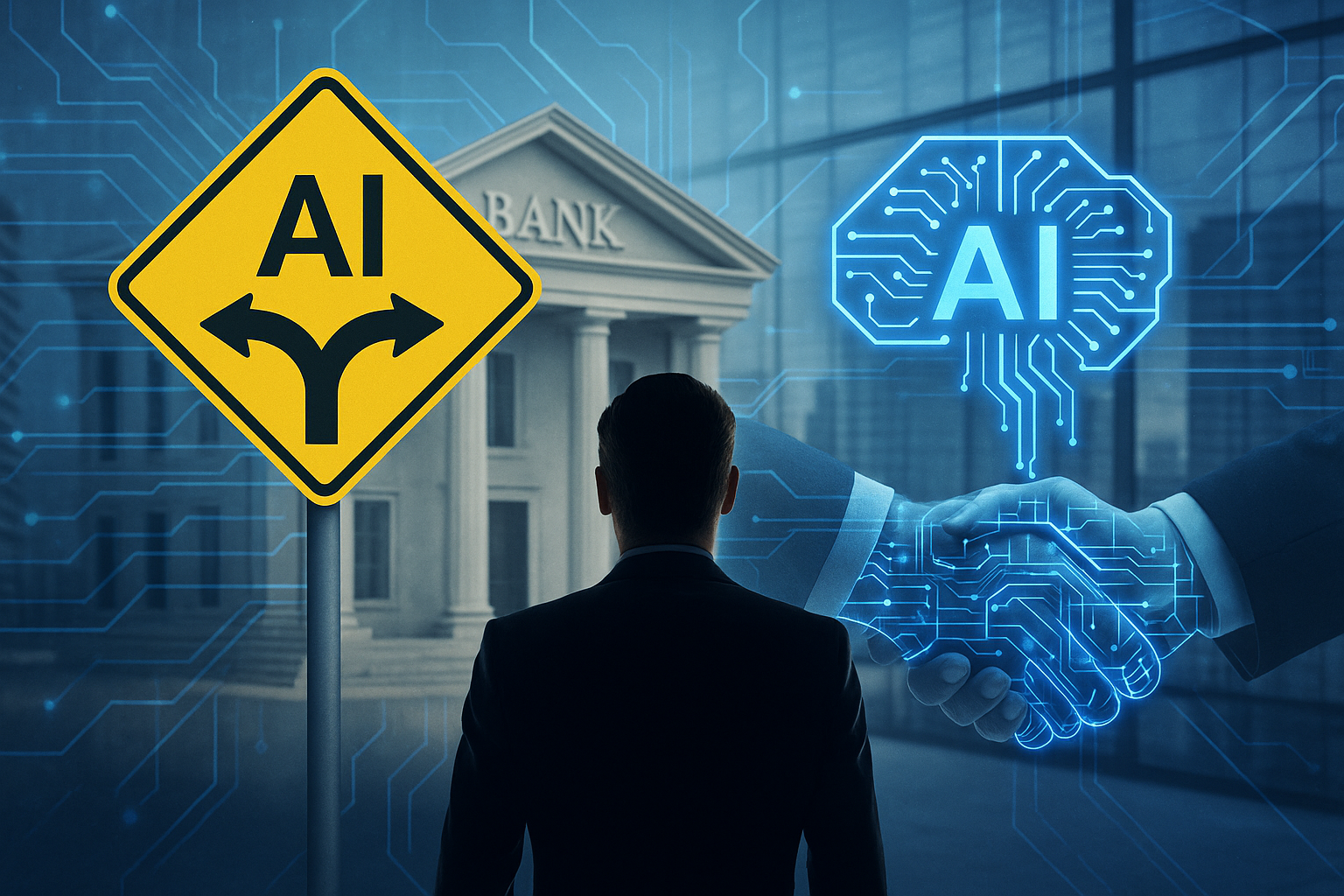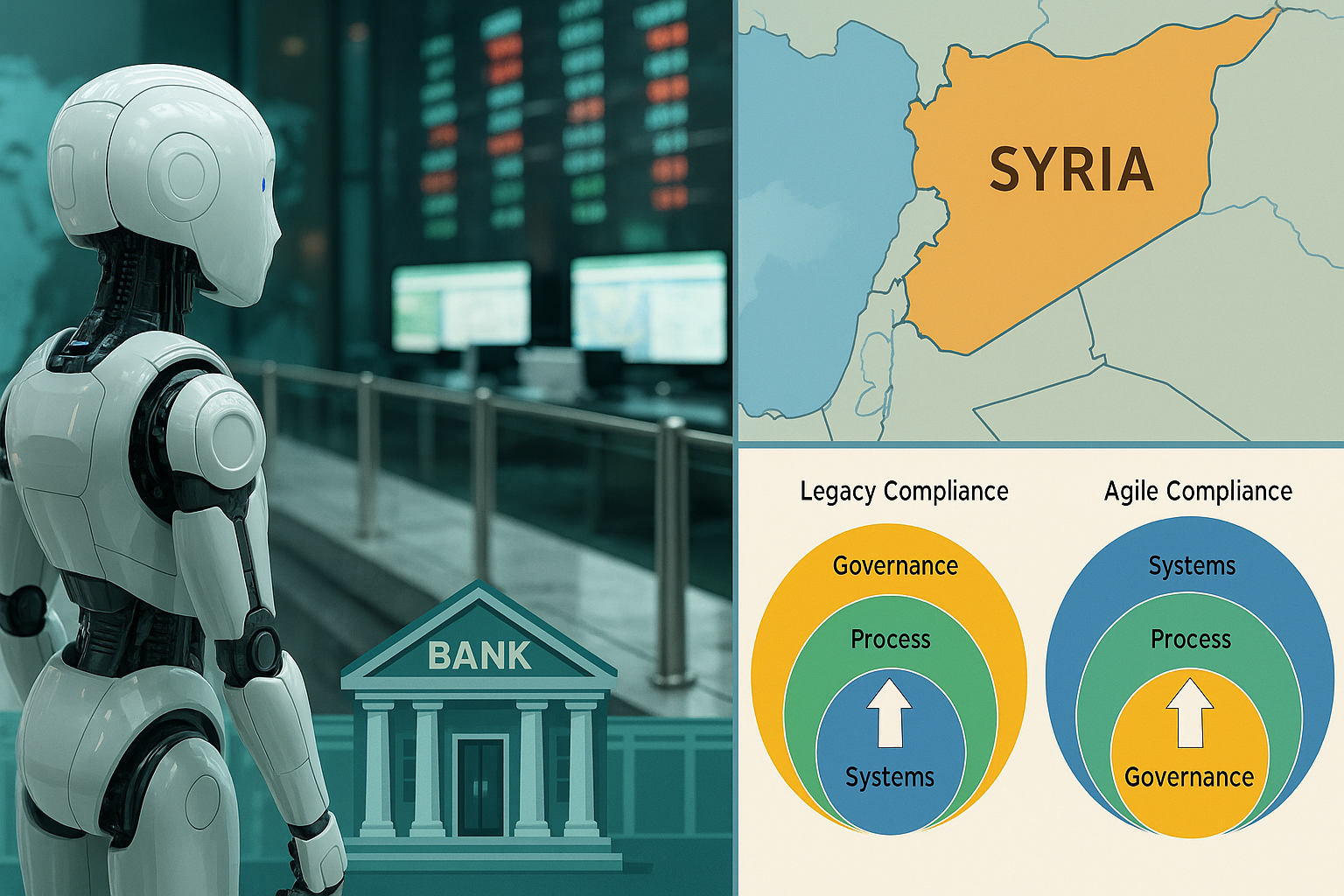Self-Sovereign Identity: A Twist for Mike Ross & Louis Litt on Suits
 In the echoing corridors of Pearson Specter Litt, a high-stakes legal battleground dressed up as a law firm, the aroma of mahogany furniture battles with the scent of freshly brewed coffee for olfactory supremacy. The TV drama, "Suits," revolves around Harvey Specter, a legal genius, and his associate Mike Ross, who's blessed with a photographic memory but cursed with a fake Harvard degree. Here, they tread carefully through a labyrinth of lawsuits, office politics, and white lies. But looming over this high-wire act is Louis Litt, the firm's senior partner and human rulebook. Louis is as vigilant as a hawk but as tech-savvy as Austin Powers trying to operate a CD player. When he's not arguing about the 'perfect mud bath' or curating his wall of 20th-century dictaphones while sipping prune juice, he's often seen squinting suspiciously at his computer screen, as if it's a mysterious relic that might spring a trap for him. And in a world as melodramatic as Pearson Specter Litt, where trust is as fragile as antique glassware in Louis Litt's meticulous office, the revolutionary concept of Self-Sovereign Identity (SSI) could be the twist of fate that rewrites the story for Mike Ross, Louis Litt, and perhaps even for us in the real world.
In the echoing corridors of Pearson Specter Litt, a high-stakes legal battleground dressed up as a law firm, the aroma of mahogany furniture battles with the scent of freshly brewed coffee for olfactory supremacy. The TV drama, "Suits," revolves around Harvey Specter, a legal genius, and his associate Mike Ross, who's blessed with a photographic memory but cursed with a fake Harvard degree. Here, they tread carefully through a labyrinth of lawsuits, office politics, and white lies. But looming over this high-wire act is Louis Litt, the firm's senior partner and human rulebook. Louis is as vigilant as a hawk but as tech-savvy as Austin Powers trying to operate a CD player. When he's not arguing about the 'perfect mud bath' or curating his wall of 20th-century dictaphones while sipping prune juice, he's often seen squinting suspiciously at his computer screen, as if it's a mysterious relic that might spring a trap for him. And in a world as melodramatic as Pearson Specter Litt, where trust is as fragile as antique glassware in Louis Litt's meticulous office, the revolutionary concept of Self-Sovereign Identity (SSI) could be the twist of fate that rewrites the story for Mike Ross, Louis Litt, and perhaps even for us in the real world.
Traditional Credential Verification: The Symphony of Suspicion
The old verification methods are fraught with uncertainty. Mike Ross, with his doctored Harvard diploma, is like a sailor on a rickety boat, hoping to evade the approaching storm of Louis Litt's scrutiny. Louis Litt, a stickler for propriety, finds discrepancies like a truffle pig finds mushrooms. If he were to suspect Mike's credentials, he'd likely initiate an internal audit. But since he is a luddite, he will do it the traditional way which is "tried and true".
Documentation: Louis would request copies of Mike's credentials and transcripts, collecting an inch-thick stack of paperwork.
Communication: He'd then reach out to Harvard's administrative office, either through a letter, fax, or phone call, to begin the verification process.
Waiting Game: As days turn into weeks, the tension would skyrocket. The firm would be in a state of suspended animation, waiting for Harvard to confirm or refute Mike's qualifications.
Outcome: A negative outcome would have devastating consequences, resulting in Mike's disbarment, tarnishing his reputation, and potentially leading to legal repercussions for both him and the firm. On the other hand, the ease of forging certificates and transcripts could deceive others into believing that his credentials are genuine.
Modern Credential Verification: Fast, Easy, Immutable and no Drama
In an alternative version of the story, the scene transitions from an engaging storyline to an awe-inspiring technological revelation. In this digital realm, individuals possess the extraordinary ability to possess verifiable credentials, serving as digital evidence of their identity and qualifications. These credentials act as impenetrable fortresses, digitally signed and tamper-proof, providing irrefutable proof of a claim made by a trusted source, such as a prestigious university diploma. These exceptional credentials can be securely stored on a blockchain, ensuring their immutability and offering advanced security measures.
Amidst this extraordinary transformation, a groundbreaking concept known as Self-Sovereign Identity (SSI) emerges, acting as a catalyst for revolutionizing the identity verification process. Within the realm of SSI, each individual possesses a digital wallet that serves as a secure sanctuary for their verified credentials, issued by trusted entities. These credentials are unbreakable and digitally sealed, rendering traditional paper-based verification methods obsolete.
Accompanying the arrival of SSI is the ingenious utilization of Zero-Knowledge Proofs (ZKPs), cryptographic techniques that enable individuals to prove the truth of a statement without revealing any other sensitive information. ZKPs are akin to the artistry of a magician, empowering individuals like Mike Ross to disclose only the essential information required for verification while staunchly safeguarding their privacy.
This is how it would work.
Issuance: Harvard (or any reputable entity) would issue a digital credential, verified and encrypted, recorded on a blockchain that is secure and immutable.
Storage: A student stores this in his digital wallet, safeguarded by cryptographic protocols and blockchain security.
Verification: Louis, now able to verify Mike's credentials with a simple QR code, gains instant confirmation through the tamper-proof blockchain record.
ZKP-based Selective Disclosure: Mike uses ZKPs to confirm only the necessary details, thereby protecting his privacy.
In this version of the story, Louis is the hero and Mike is villain. It also lacks the melodrama needed for a TV series. However, the benefits are apparent: fool-proof security with blockchain immutability, efficient verification that removes suspense and emotional toll, and privacy preservation through Zero-Knowledge Proofs. This digital transformation holds the promise of revolutionizing identity verification and trust in an increasingly interconnected world.
A New Horizon: The Implications of SSI, ZKPs, and Verifiable Credentials
In this world of intricate emotions, power struggles, and delicate alliances, Self-Sovereign Identity (SSI), Zero-Knowledge Proofs (ZKPs), and verifiable credentials emerge as pillars of certainty and security previously unimaginable. These technological marvels are a lifeline for individuals like Louis Litt, who find solace in verification and truth. They transform tense and dramatic scenarios into unbreakable bonds of trust, eliminating the insecurity of paper trails and paving the way for a digital realm of reliability and peace of mind.
While our example from "Suits" sheds light on the contrast between traditional and modern verification methods, the real-world applications are boundless.
Job Applications: Employers can swiftly verify your credentials, eradicating the need for lengthy background checks.
Financial Transactions: Open a bank account in minutes, with real-time identity verification and no need to divulge personal information.
Civic Activities and Personal Choices: Secure voting systems and efficient donor status verification are just a glimpse of the vast possibilities.
Education and Remote Learning: Universities can ensure that only enrolled students take online exams, preserving academic integrity.
Healthcare: Instant verification of medical history ensures accurate diagnoses while safeguarding patient privacy.
Combatting Fraud: In situations like the PPP loan debacle, SSI guarantees that only legitimate businesses receive the necessary aid.
These transformative technologies have the power to revolutionize not only professional environments but also personal transactions and social systems. They lay the foundation for a more secure, efficient, and privacy-centric world. The shift towards self-sovereign identity, the utilization of zero-knowledge proofs, and the adoption of verifiable credentials signifies more than just a technological trend. It represents an evolution in how we perceive trust, verification, and the very essence of identity in the digital realm.
Posts by Tag
- big data (41)
- advanced analytics (38)
- business perspective solutions (30)
- predictive analytics (25)
- business insights (24)
- data analytics infrastructure (17)
- analytics (16)
- banking (15)
- fintech (15)
- regulatory compliance (15)
- risk management (15)
- regtech (13)
- machine learning (12)
- quantitative analytics (12)
- BI (11)
- big data visualization presentation (11)
- community banking (11)
- AML (10)
- social media (10)
- AML/BSA (9)
- Big Data Prescriptions (9)
- analytics as a service (9)
- banking regulation (9)
- data scientist (9)
- social media marketing (9)
- Comminity Banks (8)
- financial risk (8)
- innovation (8)
- marketing (8)
- regulation (8)
- Digital ID-Proofing (7)
- data analytics (7)
- money laundering (7)
- AI (6)
- AI led digital banking (6)
- AML/BSA/CTF (6)
- Big Data practicioner (6)
- CIO (6)
- Performance Management (6)
- agile compliance (6)
- banking performance (6)
- digital banking (6)
- visualization (6)
- AML/BSA/CFT (5)
- KYC (5)
- data-as-a-service (5)
- email marketing (5)
- industrial big data (5)
- risk manangement (5)
- self-sovereign identity (5)
- verifiable credential (5)
- Hadoop (4)
- KPI (4)
- MoSoLoCo (4)
- NoSQL (4)
- buying cycle (4)
- identity (4)
- instrumentation (4)
- manatoko (4)
- mathematical models (4)
- sales (4)
- 2015 (3)
- bitcoin (3)
- blockchain (3)
- core banking (3)
- customer analyitcs (3)
- direct marketing (3)
- model validation (3)
- risk managemen (3)
- wearable computing (3)
- zero-knowledge proof (3)
- zkp (3)
- Agile (2)
- Cloud Banking (2)
- FFIEC (2)
- Internet of Things (2)
- IoT (2)
- PPP (2)
- PreReview (2)
- SaaS (2)
- Sales 2.0 (2)
- The Cloud is the Bank (2)
- Wal-Mart (2)
- data sprawl (2)
- digital marketing (2)
- disruptive technologies (2)
- email conversions (2)
- mobile marketing (2)
- new data types (2)
- privacy (2)
- risk (2)
- virtual currency (2)
- 2014 (1)
- 2025 (1)
- 3D printing (1)
- AMLA2020 (1)
- BOI (1)
- DAAS (1)
- Do you Hadoop (1)
- FinCEN_BOI (1)
- Goldman Sachs (1)
- HealthKit (1)
- Joseph Schumpeter (1)
- Manatoko_boir (1)
- NationalPriorites (1)
- PaaS (1)
- Sand Hill IoT 50 (1)
- Spark (1)
- agentic ai (1)
- apple healthcare (1)
- beneficial_owener (1)
- bsa (1)
- cancer immunotherapy (1)
- ccpa (1)
- currency (1)
- erc (1)
- fincen (1)
- fraud (1)
- health app (1)
- healthcare analytics (1)
- modelling (1)
- occam's razor (1)
- outlook (1)
- paycheck protection (1)
- personal computer (1)
- sandbox (1)
Recent Posts
Popular Posts
Here is a funny AI story.
Every community bank CEO now faces unprecedented...
On May 13, 2025, the U.S. government announced...



